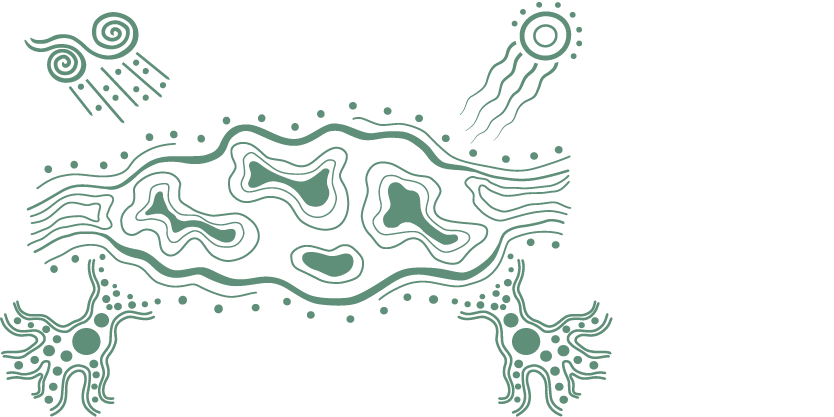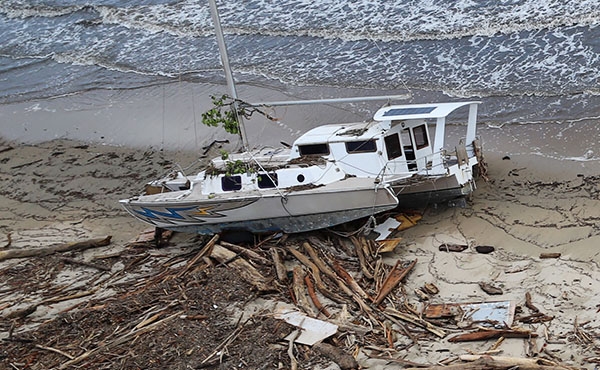“As Traditional Owners we have been on Country and Sea Country for a very long time. Through our ancestors, we are the first traditional Custodians, it’s where we learnt biodiversity. We were the land managers for millennia. We’ve got the knowledge on how to read country, manage country and we want to work together and come up with a plan to comanage country.”
— Brendan Fletcher, Traditional Owner, Gurang People
When Shen Neng 1 ran aground in April 2010, it caused extensive damage to Douglas Shoal (Box 5.5). This grounding occurred on the Sea Country of the Gooreng Gooreng, Gurang, Byellee and Tarebilang Bunda people. For traditional Custodians it was important to be at the centre of the clean-up effort. Sea rangers from Gidarjil Development Corporation became important partners in a longstanding recovery project aimed at improving management of risks and remediation of their Sea Country.
In 2023, following extensive remediation to the site, and with long-term involvement from Gidarjil Development Corporation, Sea Country is being restored. The role of the local traditional Custodians has been vital to the transfer of knowledge.
“Mob’s role has been key. Young Indigenous rangers and Elders have all been involved with the remedial project. We initially sent out three rangers and went out and did surveys and that was using scuba divers to survey the damage done. All the rangers are Traditional Owners, and it was a large achievement for them to be involved in such a large project.”
“Through these partnerships with the Reef Authority and Boskalis and our ability to use technology, it’s become a great tool for us to teach young Indigenous people the technology — aero drones and underwater drones. And it’s a good educational tool for our young ones to be more hands on, and by working in partnership they have grown their knowledge and understanding of technology and the use of data.”
The project is also providing an opportunity for Elders to share their cultural knowledge and to be at the centre of caring for Sea and Land Country.
“We know that our traditional knowledge and languages need to be sustained, and my goal is that when an Aunty or Elder passes on knowledge, we fly a drone over an area and find a cultural site we never knew existed. Together we can come up with a collective idea on how to manage country.
Healthy country and healthy people — we will continue to look after Land and Sea Country to sustain it for generations to come. These projects are about looking after nature and responding to community needs who live and exist on the Reef.”
Source: Caring for Sea Country — Traditional Owner Stories from the Great Barrier Reef 1


